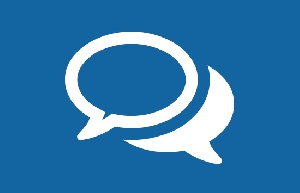Ghana’s mobile telephony industry remains one of the most vibrant in the sub-Saharan African region thanks largely to massive investments into the sector which has seen impressive growth since the opening up of the mobile network spectrum some twenty years ago. Indeed, some watchers think the number of mobile phone operators, six, operating in the country is a bit too high for a population of some 24 million. With total subscription numbers of over 29 million however, it can be argued that competition notwithstanding, operators in the sector are generally in robust health.
For the market leader, MTN, aggressive marketing drives coupled with huge investments have seen it adding numbers and protecting its position with an iron fist, literally. MTN holds 45.86 percent of the Ghanaian mobile telephony market which translates into 13,541,961 subscribers. This ‘excessive’ intake seems not to have matched expansions in network capacity, resulting in a series of challenges for the network, lately. Its mobile money service is in some crisis now and figures released by the National Communications Authority show that MTN lost 402,244 subscribers to Mobile Number Portability (MNP) as at the end of June this year, the biggest loser since MNP was rolled out some three years ago. But in view of its recent difficulties, is it fair to say that MTN has come to the end of its reign? This might be an oversimplification of the situation but all indications point to the fact that for the market leader to continue to lead, more investments will have to be injected into its operations.
Then there is Vodafone, the second biggest mobile telephony operator in the country with a market share of 22.65 percent. Most pundits are of the view that Vodafone should be the brand dictating the pace of mobile telephony in Ghana due largely to the fact that it had the luck of benefiting from an already-existing telecoms infrastructure from the erstwhile Ghana Telecoms from which it metamorphosed. Vodafone is indeed the proverbial rich kid with the golden spoon in its mouth. The network operator held a special place in corporate Ghana at its inception, with mandatory subscriptions from many government agencies and appointees. In spite of its wide national reach and generally impressive infrastructure base, Vodafone’s growth has been nothing but flat. Having lost its shine and luster, Vodafone now fights for customers just like other operators and is having its fair share of the problems within the industry. As if this was not enough, the network operator was recently slapped with a fine and a ban from registering new subscribers for a period after millions of its subscribers had to endure separate ordeals of being unable to make or receive calls and recharge credits. In the last report from the NCA on data subscriptions, subscribers can be seen voting with their feet; Vodafone hemorrhaged 387, 600 subscribers!
From the four other operators, Tigo is arguably the best positioned to cause the greatest disruption in the current pecking order. Having lost its position to MTN quite early, Tigo seems to have rediscovered its mojo and is launching a credible campaign for the top position. In recent times, the network giant’s resurgence has caught most players off guard. In the June 2014 report of the NCA on MNP, Tigo gained as much as 249,725, representing the biggest gainer for the period. This trend is mirrored in mobile data usage, where it gained some 56, 2458 subscribers, second only to Glo, which added around 86, 227 to its half a million users. Users, it seems, were not as put off by the termination of Tigo’s unlimted data plans, in favour of volume based packages. Perhaps, this can be credited to the remarkable level of investments into its infrastructure leading to a fewer number of network interruptions and an overall better adaptability. Tigo, ahead of its competitors, took the right bet on data becoming an increasingly important channel and that seems to have paid off.
Playing off its strong appeal to more youthful users, Tigo has strengthened its brand, through among others, its current “Keep Doing You” campaign. The campaign urges users to carry out their usual, digital activities as their provider delivers seamless, unobtrusive service to enable that lifestyle. This means that users can rely on the service absolutely and will not be kept from carrying out their routine activities by inconsistent service or worse. This is precisely what the contemporary consumer requires. Indeed, mobile telephony is one of those areas of service where companies are mentioned less when the quality of service is good. Most mentions of telecom services are driven by dissatisfaction, which is why MTN spawns the greatest online mentions, most of them outraged. The “Keep Doing You” campaign follows the very well received “Free Bonto” campaign and reflects a new shine on the Tigo brand which had gone into something of a retreat till about a year and a half ago. Of course, getting the brand right is one thing; delivering on its promise, quite another. Hopefully, Tigo will be able to also deliver on its planned major network expansion so subscribers don’t see ‘Keep Doing You’ as an empty promise.
Tigo’s new appeal might be due to a whole lot of factors, not least its focused attention to providing top-of-the line digital solutions to its customers. That might not be a bad marketing focus, considering the fact that data-driven services seems on the ascendancy and might be rubbing shoulders with voice a couple of years down the line. Aside data, value added services such as “Tigo Cash” are helping establish the telco as a useful companion to an active lifestyle. It can also be argued that the new management team have a lot to do with it. The appointment of Roshi Motman, the first woman to head a mobile telecom company in the country, heralded a new wave of additions that have included young hotshots Jesse Agyepong and Gifty Bingley – both from Vodafone – joining as Heads of Marketing Corporate Communications respectively. The collective effect has been the injection of new energy and vitality into the brand reflected in a bolder, fresh, new look and feel in its communications.
In contrast, Vodafone has in the last few months lost industry stalwarts Carmen Bruce-Annan, Uche Ofodile, who now runs Tigo Congo and Lucy Quist, who now runs Airtel Ghana. Its losses may well be the gain of the other providers – specifically Tigo and Airtel – where its alumni now play key roles. Not that Vodafone is not fighting back. Agnes Essah, who now leads Vodafone’s marketing operations, is an accomplished and determined professional with an enviable track record in breweries and telecoms and it will be interesting to see what moves she will initiate to keep the brand going strong.
Tigo's uphill challenge will be to keep its momentum going as it seeks to reclaim its old spot at the top. In the febrile atmosphere that is Ghana's telecom sector, operators are quick to cotton on to what may be working for others or simply to outspend them. Both MTN and Vodafone have the deep pockets to drown the competition out. This means that for Tigo, or indeed any operator, there is an enduring challenge to innovate and not rest on one’s laurels. Having once been rid of its number one position, the big question is whether the rejuvenated company can keep the pace it has set itself, or relapse and lose out again.
With Expresso understood to be rethinking its involvement in mobile telephony, at least directly, Airtel and Glo will also have to come up with something special to make an impact. Glo has been the biggest disappointment to many, failing to live up to the pre-launch hype and consolidate its brand and reach. The Indian Bharti-backed Airtel is also rumoured to be in search of an acquisition to rejuvenate itself and it will be interesting to see where that goes.
The next few months could be very interesting for the sector and for consumers, especially as the resurgent Tigo is expected to releasing a game changer before Christmas and the other players seek to consolidate and increase their hold in the market.
The writer is the editor of pulsemagonline.com and a keen observer of ICT in Ghana
Opinions of Wednesday, 22 October 2014
Columnist: S Kwame Appiah
Let the Telco war begin
Entertainment


















